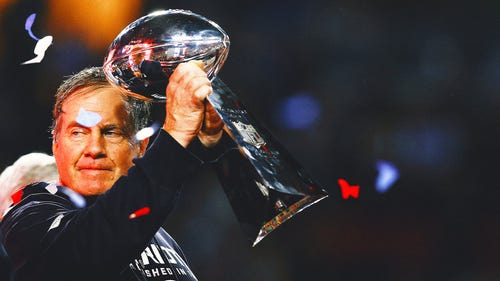
Union wants more financial info from NFL
The NFL Players Association retained an international investment bank to help it decide whether the league's offer to reveal more financial information during negotiations will be enough to satisfy the union's call for full disclosure.
Zeroing in on the crux of the labor dispute - how to split $9 billion in revenues - one NFLPA executive committee member, Cleveland Browns linebacker Scott Fujita, said in a telephone interview Tuesday with The Associated Press and NFL Network that what the NFL has turned over to the union so far ''hasn't been sufficient.
Another executive committee member, Indianapolis Colts center Jeff Saturday, said as he left Tuesday's 9 1/2-hour mediation session that the bank would ''help judge how helpful the material they were offering to give us'' would be.
The current collective bargaining agreement was set to expire last week, but two extensions now have pushed the cutoff to the end of Friday.
While progress has been made, both sides have stuck to their stances when it comes to two central issues: The NFLPA has not agreed to any major economic concessions; the NFL has not agreed to the union's long-held demand that the league completely open its books, repeatedly saying the players have enough data.
One key question is what cut team owners should get up front to help cover costs such as stadium construction and improvement. Under the old deal, owners received more than $1 billion off the top. They entered these negotiations seeking to add another $1 billion to that amount, before other revenues are divided with players.
Although there might have been some movement in that area, the union says it is not enough.
''We're being asked to give back almost a billion dollars, so it's important for us to adequately analyze and interpret the little bit of information that's been provided,'' said Fujita, who attended negotiations last month but not this week. ''And ultimately, if they're unwilling to provide full audited statements, then we need to know what other information we need to make a sound decision.''
Asked whether having full financial transparency from the league is a deal-breaker, NFLPA assistant executive director for external affairs George Atallah replied: ''In the face of an almost billion-dollar ask? Yes.''
Atallah would not identify the investment bank, which he said has been advising the union for a ''couple of months.''
The NFL's lead labor negotiator, Jeff Pash, said the bank has not contacted the league.
''We feel like we've given a lot of financial information. And we understand they may have a different view,'' Pash said. ''But I'm not going to get into what we discussed with them this week.''
He was part an NFL group Tuesday that included Commissioner Roger Goodell, New York Giants owner John Mara, Kansas City Chiefs owner Clark Hunt, Atlanta Falcons president Rich McKay - chairman of the league's competition committee - and Washington Redskins general manager Bruce Allen.
The NFLPA contingent included executive director DeMaurice Smith, president Kevin Mawae and several current or former players, including Cardinals kicker Jay Feely, Chiefs linebacker Mike Vrabel and Ravens cornerback Domonique Foxworth.
Top NFLPA outside counsel Jeffrey Kessler wasn't present Monday or Tuesday.
When Smith exited after the longest of the 13 days of mediation since it began Feb. 18, he was asked why the union brought aboard the investment bank.
''Look, this is a $9 billion business, and the players are - and have been - very involved in what we call the business of football,'' Smith said.
''Having the best and brightest people in the world advising us on financial matters - that's just good business,'' he added.
If a deal isn't reached by Friday, the sides could agree to another extension. Or talks could break off, leading to, possibly, a lockout by owners or antitrust lawsuits by players.
The NFL has not lost games to a work stoppage in nearly a quarter-century. By agreeing to continue with mediation, the league and union made it clear neither was quite ready to make the drastic move of shutting down a sport that is more popular than ever. The past two Super Bowls rank No. 1 and No. 2 among most-watched TV programs in U.S. history.
Fujita said he's ''hopeful'' a deal can be reached by Friday, but he also noted: '''Hope' - I don't know if that means anything.''
Either way, he considers it imperative that the players know more about the owners' financial records.
''What they've provided so far hasn't been sufficient. Asking for almost a billion dollars back - that's a huge, huge leap of faith. And that's kind of what it's been so far - them asking us to take a leap of faith,'' Fujita said. ''And we can't do that without sound judgment.''










